India Focuses To Be Global Hub For Quality Tyre Manufacturing: New ATMA Chairman
- By Sharad Matade
- April 14, 2025
At a critical juncture for India’s automotive sector, Arun Mammen, Vice-Chairman and Managing Director, MRF Ltd, takes over as Chairman of ATMA (Automotive Tyre Manufacturers’ Association) on its Golden Jubilee Year 2025. At a time when the Indian tyre industry is faced with stringent global challenges, Mammen, with experience of more than three decades, takes over to lead the association through a stage of change with technology revolution, sustainability and strategic expansion. In this one-to-one interview, he presents his thoughts on the industry scenario presently, the challenges in the future that lie ahead and what is India’s vision for the tyre manufacturing industry.
How did the Indian tyre industry fare in FY2025?
FY2025 has been a year of consolidation wherein Indian tyre industry showed much resilience. Despite global headwinds, the domestic market showed steady growth, buoyed by robust demand in the replacement segment and gradual recovery in OEM demand. Infrastructure and road development, focus areas in successive budgets, contributed positively to the industry’s performance. While raw material costs remained volatile, prudent cost management strategies helped the companies ride through a challenging year.
The Indian tyre industry has faced persistent challenges with raw material volatility. What concrete steps will ATMA take under your leadership to reduce dependency on imported natural rubber (NR)?
Reducing reliance on imported natural rubber is a key priority of the government as well as the industry. The planting under the INROAD project, a public private partnership aimed at new rubber plantations in 200,000 hectares in North East for enhancing domestic NR production, has entered well into the fifth year. The original target of planting 200,000 hectares of land with rubber will be completed by next year. Plantations supported by INROAD will start yielding from 2027 onwards, which will substantially reduce the production consumption gap of NR in India. Once these trees enter the yielding phase, the domestic NR output will certainly help in reducing NR imports. Meanwhile, ATMA will continue to work closely with the Rubber Board to enhance domestic production through means such as scientific farming practices. We are also working with Rubber Board through INROAD to identify the untapped rubber plantations in the country with an objective to find a way to start tapping them.
In spite of government efforts, the demand-supply gap of domestic natural rubber persists. How do you envision bridging this underlying supply hurdle?
Bridging the demand-supply gap requires a multipronged approach. First, improving productivity through agri-extension services and quality planting materials. We are promoting climate-resistant and high-yield clones through the INROAD project. Second, increasing farmer income by improving NR quality to make rubber farming viable. With iSPEED, a project of INROAD to improve quality of rubber produced in the country, we aim at significantly improving the quality of rubber produced in the country within next five years, which will substantially improve the income generation of the rubber farmers. Third, a long-term roadmap involving plantation expansion is essential. ATMA will continue to advocate for policy reforms and a long-term vision to build domestic industry and farmer confidence.
Indian export front has witnessed a peak in exports of tyres in recent years. Still, most export markets are fighting hard now. What will happen to export trends in coming months?
Global uncertainty may temper growth in the short term, but the structural competitiveness of Indian tyre manufacturers – cost efficiency, quality and compliance with international benchmarks – remains intact. While exports may stabilise in traditional markets, we expect opportunities to emerge in new geographies, particularly in Africa, Latin America and Southeast Asia. ATMA is actively engaging with the government to improve export competitiveness and bilateral trade facilitation.
There have been no tyres from China in the last two years. How has that benefitted the Indian tyre industry?
The restriction of Chinese tyres has helped provide a level playing field for domestic players, especially in the truck and bus radial (TBR) segment and also helped in stopping import of poor quality, cheap truck bias tyres which were unsafe to operate under heavy loading conditions in India, compared to the Indian bias tyres which are designed to meet the domestic service conditions. It has accelerated capacity utilisation, encouraged fresh investments and enabled Indian brands to increase their footprint in both replacement and OEM markets. More importantly, it has strengthened the ecosystem for local innovation and quality standards.
Now BIS certification is compulsory for tyre machines being sold in India. How will it help the industry? Also, there are numerous foreign tyre machine manufacturers who are finding it difficult to register and get the certification. As the apex body of the Indian tyre industry, will you assist them in this regard?
BIS certification ensures consistency in machine quality and enhances safety, efficiency and reliability in manufacturing. As tyre production gathers momentum, more avenues will open for machine manufacturers. ATMA, with the support of Department of Heavy Industry (DHI) has facilitated knowledge sharing sessions and interaction between the policy makers and machinery manufacturers, both domestic and international suppliers.
Global leading tyre manufacturers are shifting away from large-scale production of small-size tyres (14” to 18”) towards larger tyres or establishing a stronger presence in premium segments. Is there a sweet spot for Asian tyre companies, particularly Indian, in the global market?
With our cost advantage, strong engineering base and growing R&D capabilities, Indian companies are well positioned to become reliable suppliers in the volume segment, even as we continuously scale up in the premium niches. End-of-life tyre disposal is still not organised in India, even with regulations. Why has the industry failed to develop efficient recycling infrastructure, and what’s your strategy to deal with this environmental risk? The EPR regulations are a step in the right direction, but the ecosystem is still evolving in the country. ATMA is working on creating an industry-wide platform for end-of-life tyre traceability, supporting sustainable disposal technologies and partnering with recyclers to build a viable circular economy model. We are liaisoning with the authorities to create pollution-free ELT disposal by the recyclers. ATMA member companies are helping the pollution control department through auditing the process of recyclers to speed up setting checks and balance in this sector. ATMA is also following up with the government to ban import of used tyres, for the purpose of pyrolysis, into the country.
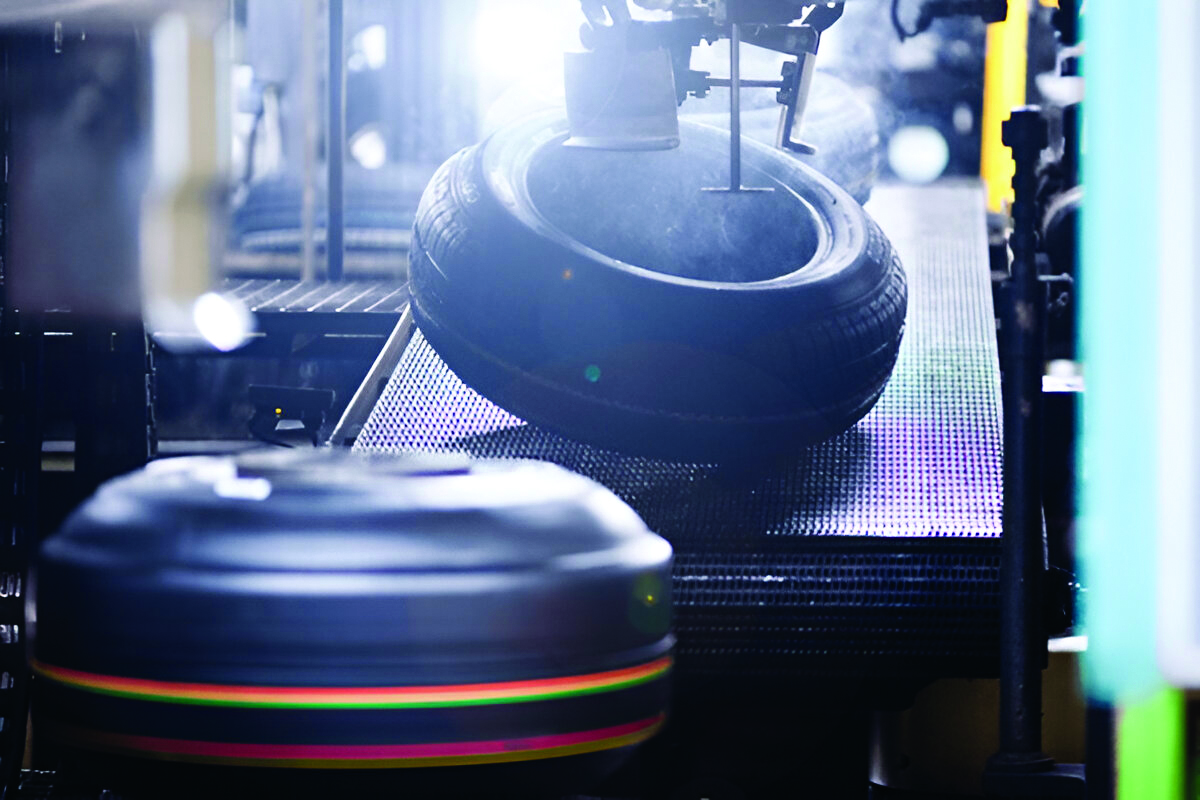 Increasing logistics costs are tightening industry margins. What are the infrastructural bottlenecks that most deeply affect the tyre industry, and how are you approaching government stakeholders to resolve them?
Increasing logistics costs are tightening industry margins. What are the infrastructural bottlenecks that most deeply affect the tyre industry, and how are you approaching government stakeholders to resolve them?
High road freight costs, port congestion and insufficient rail-freight linkages are key concerns. We are in discussions with the government to improve multimodal transport connectivity, optimise freight corridors and simplify port logistics. Faster clearances and digital infrastructure can significantly lower turnaround time and costs. ATMA continues to be an active participant for policy formulation in this domain.
Some of the world’s major tyre makers have become carbon neutral in their businesses. Why are Indian companies not following suit, and how will ATMA propel sustainability?
Sustainability is a top priority, and many Indian tyre majors have already made significant strides in renewable energy usage, water recycling and carbon reduction. While carbon neutrality takes time and scale, we’re moving in that direction. ATMA is working on a sustainability roadmap to support industry players with benchmarks, best practices and technology collaboration to accelerate green transitions.
What could be the major challenge for the tyre industry in the near future and how do you plan to overcome it?
We need to look at the challenges for tyre industry along with that of the auto industry. With sustainability gaining traction and Euro 7 and BS7 standards likely to kick off in 2026/27, auto industry may have to work overtime to meet the proposed deadlines. Transition to non-fossil fuel combustion engine, hybrid engine and EV will gain traction. There could also be some standards on tread road wear particle emission (TRWPE) although there is no clear statistics to establish the current quantity of TRWP emission. In this regard, we should be careful not to copy / paste any European legislation without considering India specific challenges. For example, India is still a major bias tyre market and there are a large number of loyal customers for this product. Instead of replacing bias tyre entirely by radial tyre, we should focus on specific interventions to make bias tyre bridge the gap with radial tyre.As far as TRWP is concerned, we will have to admit that Indian road surface as well as road terrain is totally different from Europe. So this subject need a much larger study. To begin with we need to establish a proper data base to understand and work on the problem. We are sure that we will soon find a solution for all the above problems.
How do you see FY2026?
FY26 is expected to be a growth year, supported by robust infrastructure spending and sustained vehicle demand. While global macro challenges remain, the Indian tyre industry’s fundamentals are strong. Digitisation, innovation and sustainability will be our key focus areas as we aim to position India as a global hub for quality tyre manufacturing.
Goodyear Launches ‘The Vault’ Online Marketplace
- By TT News
- March 03, 2026
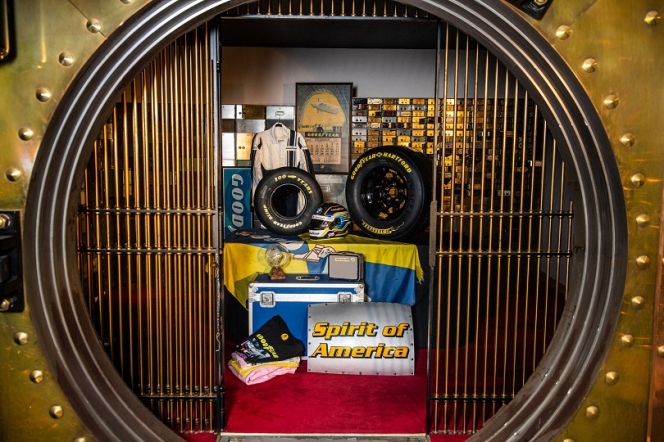
Goodyear has unveiled The Vault, an innovative online marketplace designed to transform how the public interacts with its brand and 128-year heritage. This digital destination allows visitors to explore and acquire a thoughtfully assembled selection of historic artifacts, autographed collectibles, special-edition products and extraordinary experiences. Serving both as a platform for collectors and a dynamic archive, The Vault merges significant items from Goodyear's past with contemporary cultural partnerships and exclusive new merchandise.
The collection features compelling pieces such as a segment of the engine from the legendary Spirit of America Goodyear Blimp, one of the company's earliest tyres produced in 1899, tyres raced at the 2025 NASCAR Cup Series Championship and celebrity-signed goods. To celebrate the launch, a limited-time digital puzzle is being offered. Participants who successfully solve the riddle on the company website will be entered to receive one of 30 cryptex vaults filled with exclusive prizes. These rewards range from branded merchandise to the premier prize: a private flight on the famous Goodyear Blimp. The Vault is currently accessible, with plans to release new items and opportunities throughout the coming year.



Doug Grassian, Vice President, Global External Communications, Social Media and Partnerships, said, "There's nowhere else on the planet that you can buy a section of a Goodyear Blimp engine or one of the first tyres ever made. By opening The Vault, Goodyear is transforming its legacy into something tangible, collectible and meaningful."
- Nokian Tyres
- Nokian Tyres Hakkapeliitta 01
- Studded Winter Tyres
- Winter Tyres
- On-Demand Grip
- Temperature-Adaptive Stud Technology
Nokian Tyres Reinvents Winter Driving With Temperature-Adaptive Stud Technology
- By TT News
- March 02, 2026
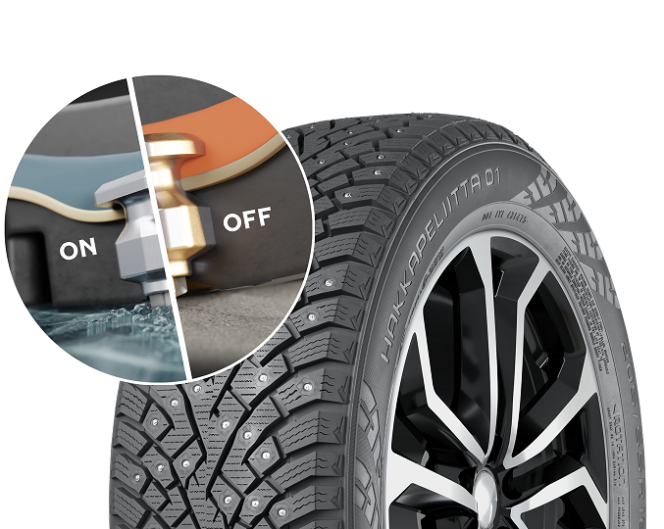
Nokian Tyres has unveiled a groundbreaking innovation in winter driving: the world’s first studded winter tyre capable of automatically adapting to temperature shifts. Named the Hakkapeliitta 01, this new product marks a significant milestone for the company, which originally invented the winter tyre in 1934 and introduced the legendary Hakkapeliitta line 90 years ago in 1936. This latest evolution fulfils a longstanding ambition to create a studded tyre that can respond dynamically to changing road conditions.
At the heart of this development is the patented Double Action Stud Technology, which enables what the company calls On-Demand Grip. This system allows the studs to automatically toggle between two modes depending on the temperature. When activated, the studs provide maximum safety and powerful traction on icy and snow-covered surfaces, offering drivers complete confidence in severe winter weather. Conversely, when the system deactivates, the tyre delivers precise handling on bare, dry roads while minimising road wear. This dual functionality ensures a stable and accurate driving experience, effectively addressing the primary concerns of studded tyre users: noise and surface wear.
The Hakkapeliitta 01 is engineered for passenger cars, crossovers and SUVs and carries both the Three-Peak Mountain Snowflake and Ice Grip certifications, underscoring its severe winter weather credentials. The technology represents the fruition of a visionary concept first proposed by the company in 2014. Since then, extensive global research and development have taken place, involving thousands of prototypes tested in diverse environments, from indoor laboratories to the company’s Arctic test centre in Finland and its facility in Spain.


The result is a tyre that delivers measurable improvements across several key areas. Compared to its predecessor, it reduces road wear by up to 30 percent. Safety has also been enhanced, with ice grip improved by up to 10 percent and wet grip by up to five percent. Furthermore, noise levels have been reduced by as much as one decibel, contributing to a quieter and more comfortable journey. In line with a commitment to sustainability, the tyre’s tread compound incorporates renewable materials, including natural rubber, bio resin and bio-based oils derived from sources like pine resin and canola oil.
The new product range will be available to consumers in the autumn of 2026, with primary markets in the Nordic countries and North America. Production will take place at the company’s factory in Nokia, Finland. A conference call is scheduled for today (2 March 2026) at 4:15 p.m. EET, during which company leadership and winter tyre specialists will present the new tyre and answer questions. A recording of the event will be accessible online for the following twelve months.
Paolo Pompei, President and CEO, Nokian Tyres, said, “The new Nokian Tyres Hakkapeliitta 01 represents one of our company’s biggest innovations since we introduced the first winter tyre more than 90 years ago. This new winter tyre achieves what was previously thought impossible: a studded tyre that responds to temperature changes to deliver ultimate safety while protecting the road.”
Mikko Liukkula, Nokian Tyres Development Manager who oversaw the tyre’s years-long evolution from concept to reality, said, “With the new Nokian Tyres Hakkapeliitta 01, we set out to rethink what a studded winter tyre can be. We didn’t want to compromise between superior ice grip and low road wear, which is a common trade-off in winter tyre development. Instead of a compromise, we developed a solution where grip adjusts automatically to the temperature, delivering maximum safety when it’s needed and more controlled, gentler road contact when it’s not. This helps drivers account for winter weather that is less predictable than ever, while navigating new regulations related to tyres’ impact on the road.”
GRI Redefines Growth Through Sustainability And Specialisation In A Volatile Global Tyre Market
- By Nilesh Wadhwa
- March 02, 2026
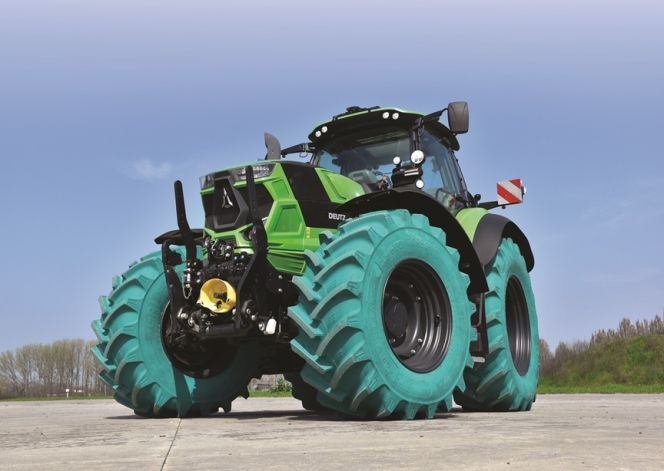
As the global tyre industry grapples with volatility and intensifying competition, Global Rubber Industries ( GRI) is sharpening its focus on specialisation and sustainability-led innovation. By prioritising value over volume, the company is redefining how growth can be achieved in complex off-highway and agricultural segments.
The global tyre industry is navigating one of its most complex phases in decades. Slowing vehicle registrations, volatile commodity prices, geopolitical uncertainty and intensifying competition are forcing manufacturers to rethink where and how they compete.
For Global Rubber Industries (GRI), the Sri Lanka–based specialist tyre manufacturer, these challenges are not signals to retreat but catalysts to sharpen focus, deepen innovation and redefine value.
In an exclusive interaction with Tyre Trends, Barry Guildford, Global Commercial Director, GRI, said, “The last couple of years have been quite challenging. Particularly if you look at the OE sector, there’s been a real downturn in the number of new vehicles being purchased. Registrations are lower, farmers’ revenues are under pressure and cash flow is a problem.”
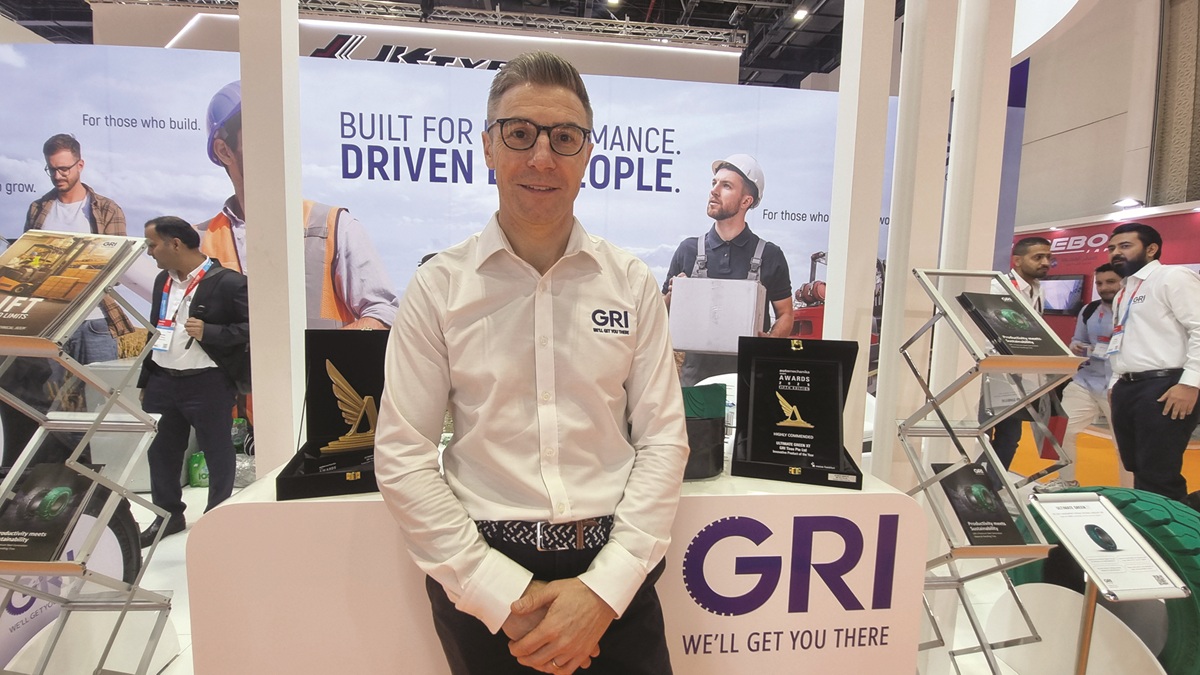 Yet, within this disruption, GRI sees opportunity – not in scale-driven volume plays but in specialised segments, sustainability-led innovation and solutions that lower total cost of ownership for customers.
Yet, within this disruption, GRI sees opportunity – not in scale-driven volume plays but in specialised segments, sustainability-led innovation and solutions that lower total cost of ownership for customers.
A TOUGH CYCLE BUT CLEAR SHIFTS IN MARKET DIRECTION
Guildford describes the past 12 to 18 months as a period marked by belt-tightening across key end-user industries, particularly agriculture.
“When you see commodity markets for certain crops, it’s impacting revenues from the farmers. There are fewer subsidies available from regional authorities, so generally speaking, it’s been a tough 12 to 18 months,” he explained.
However, beneath the surface, the aftermarket is undergoing important structural shifts. Automation is accelerating across agriculture, while electrification is reshaping material handling.
“At Agritechnica, we saw a lot of automated driving vehicles being launched in the agricultural space,” Guildford noted. “There’s also a trend towards more VF (Very High Flexion) tyres, which is a positive trend for the industry.”
On the industrial side, electrification is no longer niche. “In material handling, especially forklifts, electrification is definitely playing a role. Traditional forklift manufacturers like Linde or Hyster are being challenged by new players from Asia offering electric solutions,” he said.
For tyre makers, these trends demand more than incremental upgrades. “The status quo in the automotive industry is completely shifting, Earlier, Chinese brands had limited penetration in global markets. Now you see many more players entering, especially in developed markets,” Guildford explained.
While this increases choice for customers, it also intensifies competition. “For us as a manufacturer, these are competitors. So it’s even more important that we focus on innovation and solutions,” he said.
SPECIALISATION OVER SCALE: LEARNING FROM INDUSTRY CONSOLIDATION
Recent years have also seen significant consolidation across the global tyre industry, with legacy players divesting businesses to concentrate on core segments. Guildford views this as part of a broader cyclical pattern.
“Many changes in the industry happen in cycles. If you look back 10 or 15 years, premium manufacturers invested heavily in the OHT space. Now some are divesting again,” he said.
In his assessment, complexity has become a decisive factor. “The OHT sector is extremely complex. There are solid tyres, pneumatic tyres, radial tyres and an unbelievable number of combinations in agriculture between tyres and rims,” he said.
This complexity, he believes, has worked in favour of focused specialists. “If you look at the premium sector’s performance in OHT, it’s clear they are losing ground to tier-two players and companies like ours,” he averred.
The reason is simple. “At the end of the day, you need to focus on where you can make money – where the value is. Large manufacturers have enormous divisions focused on PLT, UHP and truck tyres. These are high-volume, high-margin businesses,” Guildford added.
By contrast, specialist segments require deep technical expertise and sustained investment. “That’s why you’re seeing mainstream manufacturers focus more on their core channels, while specialists like GRI double down on OHT and agriculture,” he said.
For GRI, this focus is deliberate. “We are not trying to be everything to everyone. We are building leadership in the segments where innovation really matters,” Guildford said.
SUSTAINABILITY AS STRATEGY, NOT SLOGAN
Few topics have been as overused – and misunderstood – as sustainability. For Guildford, the difference lies in execution. “At first, sustainability was a buzzword. Everybody had to say they were sustainable. But now it’s being taken seriously,” he said.
At GRI, sustainability is not an add-on. “It’s in our DNA. It’s how we differentiate ourselves in a crowded market,” Guildford asserted. That commitment was recently recognised when GRI’s sustainable tyre won multiple international awards, including at ProMAT in Chicago and Automechanika Dubai. “Five or six years ago, we asked ourselves how we could create space in a crowded market. We decided to go on a sustainability journey,” he recalled.
The result was a tyre containing 93.5 percent sustainable materials, designed initially for material handling. “You never know how successful a product will be until you launch it. You design it, test it, evaluate it, place it with end users and then you get feedback,” Guildford admitted.
Winning the ProMAT award was a turning point. “That gave the company a massive boost in confidence. It showed that our R&D had developed something special,” he said.
Automechanika Dubai amplified that recognition. “Here, we are up against the world’s best manufacturers. And yet, a small entrepreneurial company from Sri Lanka has produced the world’s best tyre,” Guildford said.
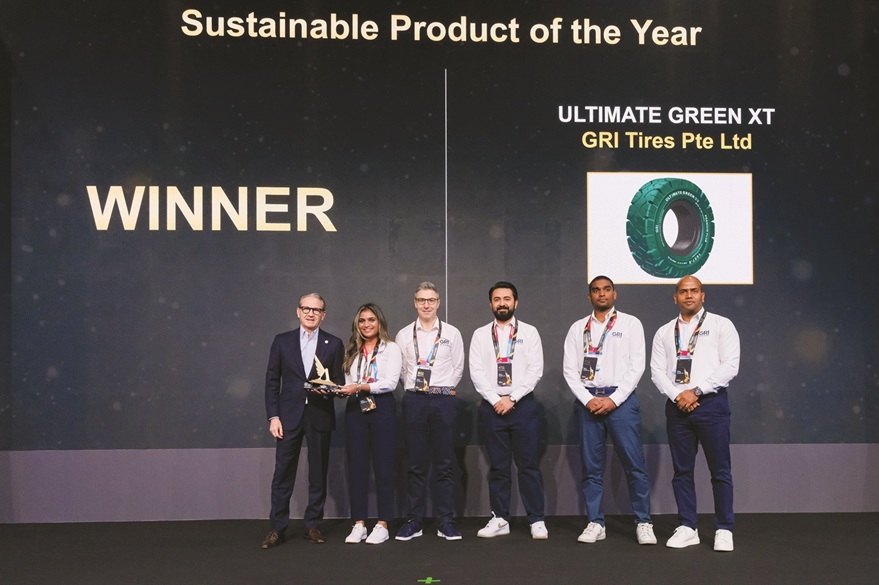 GRI won Sustainable Product of the Year and was runner-up for Innovation of the Year. “That is fantastic recognition. Not once, not twice, but three times,” said Guildford.
GRI won Sustainable Product of the Year and was runner-up for Innovation of the Year. “That is fantastic recognition. Not once, not twice, but three times,” said Guildford.
SELLING VALUE IN A PRICE-SENSITIVE WORLD
Despite the accolades, selling sustainable products in a cost-conscious market remains challenging.
“Sustainable tyres are not cheaper to produce. They are more expensive,” Guildford said candidly.
With higher material and process costs, GRI’s green tyre commands a premium. “You can’t bring it to market at the same price level,” he explained.
So why do customers buy it?
“Because you have to sell value. If you try to sell on price, you will always lose. There will always be someone cheaper,” Guildford replied.
The value proposition rests on performance and measurable impact. “This tyre reduces carbon emissions by 55 percent, certified by Bureau Veritas. It has 93.5 percent sustainable material, and most importantly, it performs better than a standard black tyre,” he explained.
When viewed through total cost of ownership, the equation changes. “If you compare operating costs, it’s actually the cheapest alternative. You pay more upfront, but you get it back in performance,” Guildford explained.
This mindset, he believes, marks a shift in customer behaviour. “If you always buy budget products, you never see the full benefit of premium solutions,” he said.
A FULL INNOVATION PIPELINE AND MEASURED CAPACITY EXPANSION
Looking ahead, GRI’s innovation roadmap is extensive. “We have two or three strategic roadmaps that we are working on,” Guildford revealed.
The sustainability journey is far from complete. “93.5 percent is amazing, but there is still room to go. Our R&D team is already working to push that beyond 95 percent,” he said.
In agriculture, the company is accelerating investment in advanced technologies. “At Agritechnica, we launched our steel-belted products. We will be heavily investing in steel-belted technology and VF going forward,” Guildford said.
Construction tyres are another focus area. “There are elements like L5 that we need to introduce, particularly for this (Middle East) region,” he added.
Behind the scenes, GRI is also reassessing its solid tyre portfolio and brand architecture. “The innovation pipeline is full,” Guildford explained.
Responding to the company’s production expansion plans, Guildford said that expansion will be disciplined rather than rushed.
“At the moment, we have room to grow within our existing infrastructure. We want to reach full capacity before thinking about a new plant,” he replied.
That said, growth may eventually necessitate expansion. “In a three-to-five-year timeframe, if all goes well, then yes, we may look at new facilities,” Guildford said.
As global tyre markets remain volatile, Sri Lanka’s GRI aims for clarity rather than speculative risk. By focusing on specialisation, sustainability and value creation, it is positioning itself not just to weather industry challenges but to reshape expectations within its chosen segments.
“Innovation is not optional anymore. It’s the only way forward,” Guildford concluded.
KraussMaffei Technologies Appoints Dirk Musser As New Managing Director
- By TT News
- February 27, 2026

KraussMaffei Group is set to implement a leadership transition at its subsidiary, KraussMaffei Technologies, with a change at the board level. Jörg Stech, who has served as Chairman of the Board and global head of injection moulding, automation and additive manufacturing since 2023, will be departing on 31 March 2026 at his own request. He will be succeeded by Dirk Musser, the current Head of Group Transformation at the parent company, who has been appointed as the new Managing Director effective 1 April 2026. The leadership handover between Stech and Musser is already in progress, ensuring a seamless transition.
Stech’s tenure unfolded during a difficult economic period marked by financial losses and a contracting market. He responded with decisive measures aimed at margin enhancement and balance sheet improvement, which laid the groundwork for the company's long-term stability. Under his direction, the product lineup for injection moulding and automation was revitalised with the introduction of the LRXplus linear robot, the fully electric PX series and the MC7 control system, all launched in late 2025 alongside new artificial intelligence tools. He also launched a multi-year development initiative and pushed the company into new markets, such as aerospace and drone technology, by leveraging expertise in specialised processes like ColorForm. Through a focus on operational excellence, pricing discipline and capital efficiency, Stech guided the company to a significantly more resilient position compared to three years prior, despite the persistent downturn in injection moulding.
Musser brings to his new role extensive experience in transformation and finance. In his current capacity, he has already been closely involved with KraussMaffei Technologies, collaborating with its leadership to drive strategic initiatives and enhance operational performance. His qualifications include sharp analytical abilities, a strong grasp of industrial processes and a broad international perspective. An economist by training, Musser has accumulated over 20 years of leadership experience across various technology and industrial sectors. His background includes leading major transformation and turnaround projects at CRRC New Material Technologies, where he stabilised plant earnings in North America, as well as directing operational and financial restructurings during his time at Deloitte. He has also held roles with P&L responsibility, managing global supply chains and post-merger integrations at CRONIMET and has prior experience with automotive manufacturers including Daimler and Fujian Benz Automotive in China.
Alex Li, CEO, KraussMaffei Group, said, "Jörg Stech took on responsibility in a difficult situation, set clear priorities and launched decisive initiatives. The successful market launch of the LRXplus linear robot and the all-electric PX machine series, the consistent focus on profitability and the sustainable strengthening of our balance sheet are visible results of this work. We would like to express our sincere thanks to Jörg Stech for his leadership, integrity and team spirit. We value Dirk Musser as a leader who combines strategic clarity with operational excellence. In a short period of time, he has provided vital impetus for the transformation of the group and impresses with his analytical strength, decisiveness and deep understanding of our processes – not least through his successful collaboration with the managing directors of KraussMaffei Technologies. We are convinced that he will continue on this path with clarity and creative drive to successfully align KraussMaffei Technologies."
Stech said, "After many years in an environment full of technological, economic and geopolitical challenges, I look back with great gratitude on a time in which I was always surrounded by an exceptional workforce. Together, we achieved things that many initially thought were impossible. This cooperation, this willingness to push boundaries and create something new, was a joy for me. My special thanks go to all stakeholders in the company and, of course, to all employees. I leave with respect, gratitude and the conviction that this long-established company will continue to achieve great things in the future."
Musser said, "Together with my fellow managing directors Dr Frank Szimmat and Markus Bauer, I want to resolutely drive forward the further development of KraussMaffei Technologies. Our focus is on further expanding stability and performance and taking the necessary steps to successfully position the company in a dynamic market environment. I look forward to shaping this path together with our teams.”







Comments (0)
ADD COMMENT